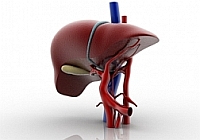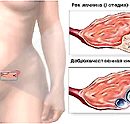What are the modern methods of treating hepatitis with? Are there alternatives to antiviral treatment? Answers to these questions you will find in the article.
Content
Is it possible to cure hepatitis
Preparations with antiviral action are applied to the treatment of chronic hepatitis for more than 20 years. The meaning of their use is to eliminate the cause of the development of chronic hepatitis - the removal of the virus. Removing the virus from the body, you can achieve the cessation of the inflammatory process in the liver and prevent the progression of the disease to the development of cirrhosis and liver cancer. In recent years, in the global practice of treating chronic viral hepatitis, especially chronic hepatitis C, there is significant progress. If in chronic hepatitis «IN» It is possible to achieve cure in 30-40%, and with chronic hepatitis D (Delta) only in 15-20% of patients, then with chronic hepatitis «WITH» - more than 70% of patients!
But even in the early 90s of the last century, chronic hepatitis C considered the incurable disease. At an early stage of application of antiviral treatment, its effectiveness barely reached 6-7%. Today, in the XXI century, the generalization of the results of the use of modern treatment regimen and the latest drugs showed that 60-70% of patients with chronic hepatitis with. Thus, the effectiveness of the treatment of this dangerous disease increased 10 times!
What is the prognosis of treatment
It is known that the effectiveness of treatment depends on many factors. Of great importance is the genotitis from the hepatitis C virus. In Russia, genotype 1b is most often found in Russia, less often Gotypes 1A, 2A, 3A. The highest treatment efficacy (up to 95%) in patients with genotypes 2a, 3a. The result of treatment depends on the degree of virus activity (viral load). Therefore, studies of the genotype of the virus and quantitative analysis of viral RNA are required before the start of treatment.
The effectiveness of treatment depends on the age of the patient, duration and stage of the disease (the effectiveness is lower in patients with cirrhosis of the liver), the degree of use of alcohol, the presence of obesity and some other factors.
Extremely important in achieving a successful result are the readiness of the patient for treatment, complete understanding with the attending physician (link on the schedule), a clear adherence to the recommended doses of drugs and the duration of treatment, the regularity of the control of laboratory indicators and visits to the doctor for the purpose of timely correction.
Of great importance is a personal experience of a doctor in the application of modern treatment schemes developed in world science and practice. Only many years of work experience allows you to individualize the treatment approach, to achieve its maximum result, even in the most difficult cases, minimize side effects and prevent its premature cancellation.
Extensive world experience shows that among patients with high adherence to treatment, which include patients who have received at least 80% of the recommended doses of drugs throughout at least 80% of the recommended treatment duration, the effectiveness of treatment exceeds 70%.
The well-known factors listed here, affecting the effectiveness of treatment, help predict its result. However, the most reliable prediction of the success of treatment is based on the determination of the rate of disappearance of the RNA of the virus in the study by the polymerase chain reaction (PCR) in the first weeks of treatment.
It's time to be treated
 Chronic hepatitis with very often detected with a random examination in people who consider themselves absolutely healthy. In such cases, patients often do not understand why they need expensive and long-term treatment.
Chronic hepatitis with very often detected with a random examination in people who consider themselves absolutely healthy. In such cases, patients often do not understand why they need expensive and long-term treatment.
Patients should know that hepatitis C is, as a rule, slowly progressive disease. Liver cirrhosis is formed on average 20-30 years after infection. However, people who use alcohol, drugs accepting «Heavy» For the liver, medicines, the formation of the liver cirrhosis occurs significantly faster - during the first 10 years after infection. «Cowar» Hepatitis C virus is that for several years after the infection, a person can feel healthy, and sometimes the first symptoms of the disease appear only in the late stage of the liver cirrhosis, when treatment presents great difficulties and prognosis adversely. After the formation of cirrhosis, the disease acquires significantly faster pace of progression with the development of complications: jaundice, clusters of fluid in abdominal, bleeding, disturbances of consciousness. At this stage of the disease, more radical measures are required, in particular, liver transplant operation. Part of patients with the hepatitis C virus is striking not only the liver, but also other organs. It can cause the development of some blood diseases, kidneys, joints, skin even before the formation of the liver cirrhosis.
If the patient first identified chronic hepatitis C, this, of course, does not mean that treatment must be started immediately. However, it is necessary to know that the effectiveness of treatment is higher in the early stages of the disease.
Several years ago, when the effectiveness of antiviral therapy was significantly lower, the treatment was not shown in patients with normal biochemical indicators and low activity of the liver process according to liver biopsy. As a rule, patients with cirrhosis of the liver infected with genotype 1a and 1b due to very low efficiency of antiviral therapy. Recently, using the newest combined treatment regimens, the circulation of indications for antiviral therapy has significantly expanded. Antiviral treatment is shown by most patients with chronic hepatitis C (including low disease activity and at the stage of compensated liver cirrhosis) with the exception of patients who continue to abuse alcohol, drugs that have contraindications for treatment.
Side effects are possible, but easily controlled.
Patients should know that the overall health in most patients during treatment is somewhat worse than before treatment. This is due to the possibility of developing such side effects as an increase in temperature (at the beginning of treatment), reduction of hemoglobin levels, changes in the nervous system (irritability, insomnia, decline in mood), changing the function of the thyroid gland. Decreases appetite, and, as a rule, there is a slight weight loss. Less often worried dry skin and rash, dry mucous membranes, cough. All side effects are controlled by a doctor and are not dangerous to life. Some side effects may require additional drugs, such as drugs for regulating the thyroid function, nervous system, to increase hemoglobin levels. All side effects are completely disappearing in the first weeks after the completion of treatment.
Is there an alternative
Today there is no alternative to antiviral treatment. There are a number of drugs that are offered as an alternative to antiviral treatment, but no one of them has been proven to eliminate the virus and curing the disease.
Our century - century of rapidly developing medical technologies. Over the past two decades, dozens of new drugs with antiviral action are developed and began to apply under various virus infections. New antiviral drugs are being developed and for the treatment of chronic hepatitis with. They will appear, apparently, in a few years. But today it is safe to say that the diagnosis of hepatitis is not a deadly or lifelong sentence. The desire of the patient and the doctors' professionalism today can defeat the disease and return the body a clean and cloudless health sky.









